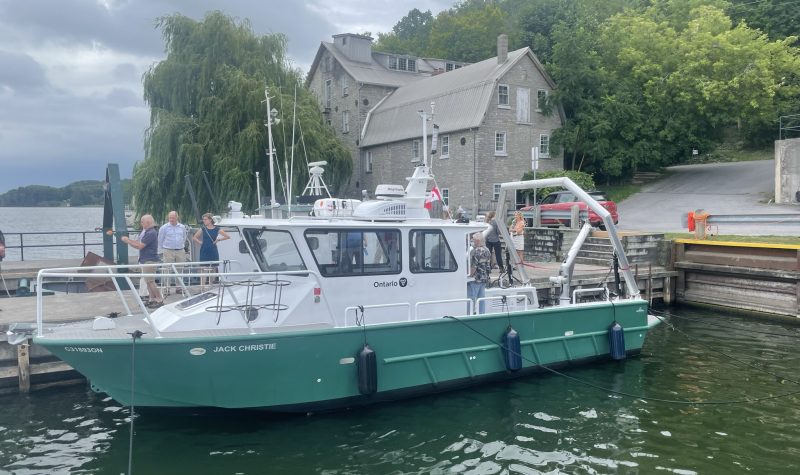On Aug. 4, public and staff at the Glenora Fisheries Station gathered to christen the R.V. Jack Christie, the newest Ontario research vessel to call the station home.
The vessel was named after distinguished Picton-area scientist, W.J. "Jack" Christie, who passed away in 1997. He conducted decades of internationally recognized research into the causes of collapsing fisheries and poor environmental health across the Great Lakes at Glenora since the mid-1950s. Christie pioneered a holistic approach to studying lake life, known as the "ecosystem approach,” which emphasizes the “interconnections among fish, other aquatic species, and the chemical and physical properties of the water.”
The 12-metre research vessel (with a range of 500 nautical miles) was built by Hike Metal Products Ltd.
Tim Johnson, Senior Research Scientist at Glenora Fisheries Station, described the vessel as being “designed to be as versatile as it can be, but also future looking.” It will have a holistic mission that includes water quality monitoring and habitat mapping accomplished through dropped sensors and acoustic receivers. Christie’s family was at the celebration; his son Gavin Christie remarked that his father “would be thrilled with the honour” and that he “would be really pleased to know that the science he was so involved in, so committed to, is going to continue examining and thinking about how the elements of the ecosystem are interconnected, and how they support all the fisheries that people depend on.”
Listen to Tim Johnson's full interview (which delves into the vessel's mission, capabilities, and Great Lakes climate change impacts), here:
Listen to this story below:


